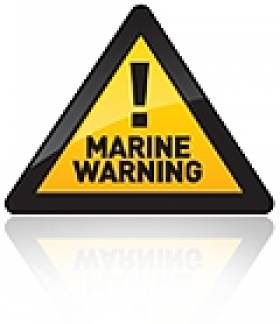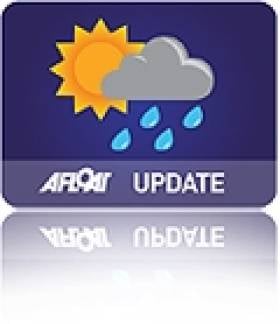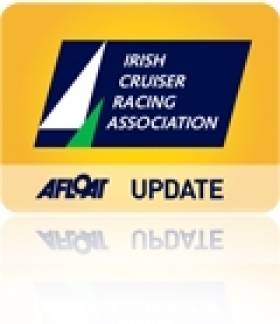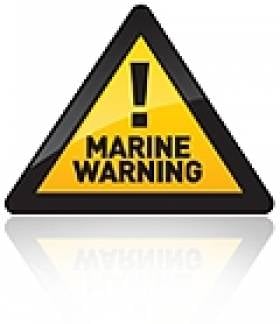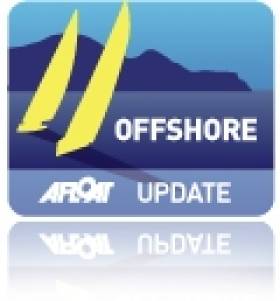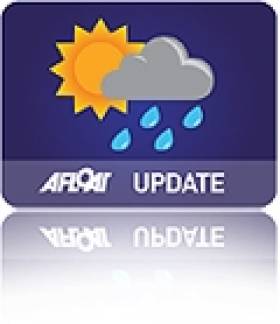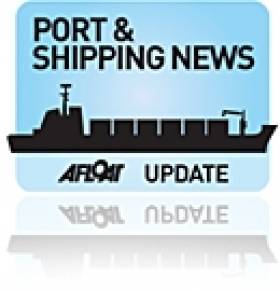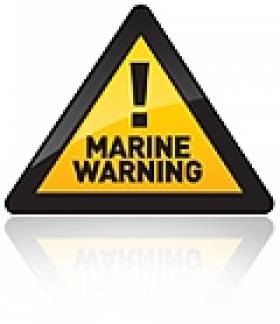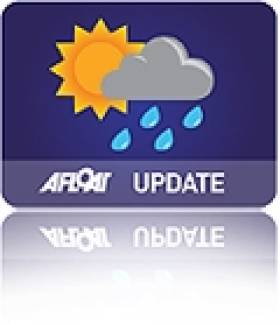Displaying items by tag: Storm
Coast Guard Issues Warning as Storms Forecast for this Week
#STORM – Members of the public have today been urged to heed the advice of the Irish Coast Guard as Met Eireann has forecast very windy or stormy conditions today with winds gusting 100 to 140km/hr, strongest along the North coast.
A severe weather alert and gale warning has been issued by Met Eireann as west to southwest gales or strong gales are forecast to continue this afternoon on all Irish coastal waters and on the Irish Sea, with storm force winds for a time on coasts from Erris Head to Rossan Point to Fair Head. Squally showers or thunderstorms will give some wintry falls of sleet and snow especially on hills but at some low levels also. The showers will be most frequent in the North and West with blizzard-like conditions on some hills.
Severe weather such as this brings not only high winds, but the risk of heavy downpours and the potential for spot flooding. The Coast Guard strongly advise the public not to go out on exposed coasts, cliffs, piers, harbour walls, beaches, promenades or any other coastal areas during the inclement weather. Huge waves can be whipped up by high seas. These waves can pose hazards to anyone close to the shoreline.
Wintry showers are forecast to continue tonight in the North, Northwest and Southwest overnight with falls of sleet or snow. Showers will be isolated elsewhere. The wind will moderate and it will be very cold with lowest temperatures of plus 2 to minus 2 degrees with some frost and icy patches. Manager of the Irish Coast Guard, Declan Geoghegan said: "Do not attempt to cross at fast running river or flood water fords as they may be stronger and deeper than you think. Flooded urban areas may contain many hazards, not least of which include submerged open manholes and downed power lines. The combination of tides, forecasted gale warnings for the next day or so, high sea conditions and swollen rivers may result in very dangerous conditions."
Remember to monitor weather broadcasts when travelling and heed the advice of the RSA on road use during severe weather and high winds.
Specific advice from the Coast Guard today (13 December 2011) is:
· Stay away from the shoreline and do not engage in water sports
· Do not venture out unnecessarily when gale force conditions are forecast
· The public are advised to avoid exposed coasts, cliff paths and coastal areas during inclement weather this week
· Owners of small vessels and fishing vessels in coastal waters should seek shelter and secure them properly with moorings.
If you do see someone in difficulty in the sea, on the shore, cliffs, lakes or rivers dial 999 or 112 and ask for the Coast Guard.
Storm Force Wind Warning In Effect for Irish Coast
#WEATHER - The Irish Coast Guard has warned people to stay away from cliff paths and other coastal areas as near hurricane force winds continue to batter the country, the Irish Examiner reports.
As of this morning, Met Éireann was expecting gusts of up to 140 kilometres an hour in Connacht and Ulster.
All Irish coastal areas are expected to experience strong gales. Winds will occasionally reaching violent storm force 11 on coasts from Rossan Point to Malin Head to Fair Head this afternoon, according to meteorologists.
Storm Wins ICRA Boat of Year Award
As predicted in Afloat's online reader poll Howth Yacht Storm (Pat Kelly) has lifted the Irish Cruiser Racer Association's Boat of the Year award at this afternoon's ICRA conference in Dun Laoghaire.
Among other wins, the J109 design counted five firsts in an impressive vistory in class one IRC at this year's ICRA Nationals held in Crosshaven.
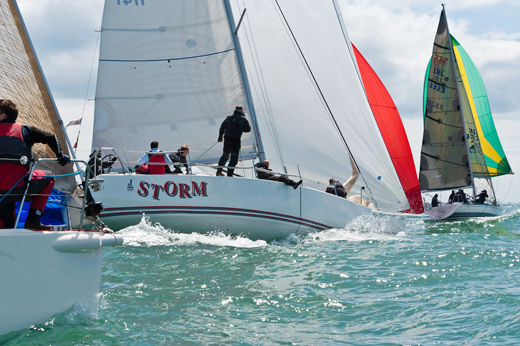
Boat of the Year Storm in winning style. Photo: Bob Bateman
Ireland Battens Down the Hatches for Hurricane Katia
Ireland has battened down the hatches because of fears Hurricane Katia would wreak widespread havoc with storm-force winds and giant waves. The Coast Guard has issued a weather alert warning people to stay away from cliff edges. Boaters are also warned of the dangers of walking near exposed quays.
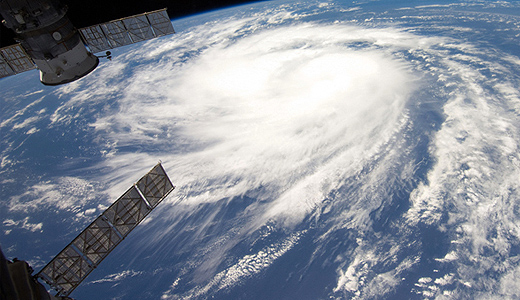
Hurricane Katia as seen from the space station
Preparing for the Challenge of La Solitaire du Figaro
Dubliner Paul O'Riain's comprehensive article on his Figaro debut experience in 2007 has moved, Click this link for it and the latest La Solitaire du Figaro news.
Velux 5 Oceans Skippers Prepare for Storm
Velux 5 Oceans skippers are battening down the hatches as a summer storm surges towards the fleet in the Southern Ocean - with giants swells and winds of more than 40 knots expected
“I’m a little anxious, I want to make sure I take care of the boat,” said sprint leader Brad Van Liew, American skipper of the Eco 60 'Le Pingoui'.
"If it doesn’t bring too much unexpected weather we could get some good fast sailing from it. If it ends up bringing a lot more wind than forecast it could be a lot more dangerous.”
Van Liew and his fellow racers have already spent three weeks at sea in the second ocean sprint, covering 5,000 nautical miles, with 2,500 left to go to the finish line in Wellington, New Zealand.
At this stage speed is of the essence, but safety is paramount - the Velux 5 Oceans skippers must make sure they they stay in the race if they want to contend for a podium finish.
As of 6pm yesterday, Le Pingouin was in the lead ahead of Zbigniew Gutkowski in Operon Racing, Derek Hatfield in Active House and Chris Stanmore-Major's Spartan.
New Website For Irish Weather Enthusiasts
Ireland's first dedicated weather news and long range forecast website, Irish Weather Online has been launched. The independently run website has already been profiled on The Weather Channel in the US since it went live last week.
Described as a website by weather enthusiasts for weather enthusiasts, the site features a daily long range weather forecast from climatologist Peter O'Donnell, the latest news relating to the weather and climate in Ireland, and weather related video and imagery.
Live weather conditions in over 50 locations throughout the country are hosted on the site, courtesy of Ireland's Weather Network.
There also dedicated sections to ski conditions at resorts around the world, the latest recorded earth tremors in Ireland and the UK (provided by the British Geological Survey), lightning reports from Ireland, real-time weather conditions in cities all over the world, and a timeline of extreme weather events down through Irish history.
iWeather Online also hosts a 'Live chat' forum which enables visitors to engage with other weather enthusiasts on the issues of the day.
According to iWeather Online founder Mark Dunphy: ""Every conversation in Ireland begins with a comment on the day's weather. Consequently, we saw there was considerable scope for developing an all inclusive portal for weather related information and by doing so tap into the huge interest among Irish people in the weather. The website's success depends on the contributions of weather enthusiasts from every county in Ireland and by providing relevant, up to date weather information we aim to become Ireland's number source for Irish weather news and information."
"The timing of the website launch last week was somewhat fortuitous as we went live less than 24 hours before Storm Carmen brought some of the strongest winds recorded in the country in recent years. A real-time report on the storm and its impact around the country attracted thousands of visitors from throughout Ireland and abroad which assisted us to providing a pictorial timeline of the storm. Some of these images were subsequently broadcast to millions of viewers of The Weather Channel in the USA.
"Many of the initial contributions to the site have come from users of the hugely popular weather forum on www.boards.ie", he added.
Visitors to the site are invited to submit pictures and videos to [email protected].
For more visit HERE
Storm Strands Ferry in South Devon Bay
Thursday night's stormy seas forced a car ferry with more than 40 Irish-bound passengers to shelter in a south Devon bay.
The Herald Express in Devon reports that the Norman Voyager, which left Cherbourg on Wednesday night, was due to arrive in Rosslare by Thursday afternoon.
But stronger than usual winds from the Atlantic storm system persuaded the captain to forgo the usual refuge of Falmouth and take shelter in Torbay, rather than risk the 186-metre vessel in the turbulent waters of the Irish Sea.
Local Coastwatch member Brian Knowles spotted the ferry seven miles of Berry Head.
"It's very unusual to have a passenger ferry here," he said, remarking that 12 ships were anchored in Torbay and nearby Babbacombe Bay to shelter from Force 12 winds.
Stay Away from the Edge Warns Irish Water Safety
Irish Water Safety is asking people to keep away from the water's edge during the current violent storm force winds and high seas. Ireland averages 153 drownings every year and every year a number of tragedies occur as a result of people walking too close to the edge of coastal areas, cliffs, rivers and lakes during such stormy conditions.
Irish Water Safety is also asking those who own a small craft to make sure that it is well secured and when doing so, to wear a lifejacket at all times as there have been drownings during such activities in the past.
Motorists need to be particularly vigilant to avoid flooded areas on roads but particularly near rivers, because with poor light and short days it is not possible to determine the depth of floods easily. Swift water will carry cars and other vehicles away and there have been very tragic drownings in the past as a result of such accidents.
Children are naturally curious about water, therefore parents should caution them that floodwater hides the true depth and that manhole covers may be open and that small streams when swollen are very fast and deeper than normal.
What should I do when I hear a Flood Warning?
· Listen to the national and local radio for met eireann updates and AA Road watch updates
· Check on neighbours particularly if they are elderly, infirmed or families with young children
· Move your vehicles to higher ground
· Move animal stock to higher ground
· Check your small craft to ensure they are well secured or moored
· Make sure you have warm clothes, food, drink, a torch and radio.
· Block doorways and airbricks with sandbags or plastic bags filled with earth. Floodgate products will work effectively also.
· Switch off gas and electricity supplies if flooding is imminent.
· Check the time of High Water in the Newspaper.
· Check out www.flooding.ie for more detail on General flooding
Personal Safety
· Avoid flood waters at all times
· carry a mobile phone at all times in case you need to call for help - call 112 or 999 in emergency
· Wear suitable protective clothing & a lifejacket in on or around water
· Do not enter fast flowing water.
· Never put your feet down if swept away by fast flowing waters
· Flooding on roads will be deeper at dips and around bridges.
· Stay away from sea and flood defences.
· when walking or driving, be aware of manhole covers and gratings that may have been moved due to the heavy flow of water.
· Take care when using electric appliances in damp or flood conditions.
· Remember that during the hours of darkness the dangers are multiplied.
After the flood
· Avoid eating food that has been in contact with flood water.
· Run water for a few minutes and wash your taps.
· Check gas and electricity supply.
· Leave wet electrical equipment alone to dry and have it checked prior to use.
· Ventilate your property well.
· Check on elderly neighbours.
Bray Web Cam Captures Storm Scenes
East North East winds that hit the country overnight are creating big waves on the East coast this morning. Bray Sailing Club's web cam is picking up the storm waves breaking at the mouth of the North Wicklow harbour HERE. (Check back at lunchtime, the time of high water today). More Webcam views at Dun Laoghaire HERE



























